Histone Isolation and Enrichment Service
Histones are the core components of eukaryotic chromatin. By binding to DNA to form nucleosomes, histones play a decisive role in chromatin structure and gene expression regulation. Beyond maintaining genome stability, histones are also essential in epigenetic regulation, cell cycle control, and disease pathogenesis. With the rapid advancement of research on histone post-translational modifications (PTMs), it has become clear that the dynamic changes in histone modification profiles directly influence cell fate, signal transduction, and disease progression.
However, due to the tight association of histones with DNA and other non-histone proteins, their isolation and enrichment remain technically challenging. The choice of strategy directly impacts the quality of downstream detection and the preservation of modifications. Leveraging advanced experimental platforms and diverse strategies, MtoZ Biolabs provides a comprehensive histone isolation and enrichment service for researchers to obtain high-quality data in both fundamental research and drug development.
Services at MtoZ Biolabs
At MtoZ Biolabs, we provide a comprehensive histone isolation and enrichment service that consist of histone extraction, histone purification, and histone-modified peptide enrichment. Each step can be performed independently or in combination, depending on research needs.
1. Histone Extraction
We employ various extraction strategies to maximize yield and purity while maintaining modification integrity:
- Acid extraction: Strong acids such as sulfuric or hydrochloric acid are used to release histones from chromatin, leveraging their strong basicity. This method is widely applicable to mammalian cells and tissues.
- High-salt extraction: Releases histones in a high-salt environment, avoiding potential degradation of acid-sensitive modifications such as certain phosphorylation events. This is particularly suitable for modification-sensitive studies.
- Acid-ethanol rapid method: Combines acidified ethanol with mechanical disruption to rapidly inactivate endogenous enzymes, minimizing artificial modification loss. This strategy is especially effective for yeast, fungi, and low-input samples.
Protease, deacetylase, and phosphatase inhibitors are included throughout the process to ensure modifications such as acetylation, methylation, and phosphorylation remain intact.
2. Histone Purification / Separation
Extracted histones may still contain contaminants, histone variants, or residual nucleic acids. We offer multiple purification approaches to achieve high sample purity:
- Reverse-phase HPLC (RP-HPLC): Provides high-resolution separation of histone isoforms and variants, particularly useful for distinguishing H2A, H2B, H3, and H4.
- Hydrophilic interaction chromatography (HILIC): Ideal for polar or hydrophilic histones and peptides, improving resolution between hydrophilic and hydrophobic fractions.
- Trichloroacetic acid precipitation (TCA precipitation): Removes soluble protein contaminants and concentrates histone samples.
3. Histone Modified Peptide Enrichment
Histone PTMs such as methylation, acetylation, and phosphorylation are often the key focus of functional studies. To enhance the detection of these peptides, we offer targeted enrichment methods:
- IMAC (Immobilized Metal Affinity Chromatography): Uses Fe³⁺ or Ga³⁺ ions to selectively capture phosphorylated peptides, improving detection of phosphorylation events.
- TiO₂-based enrichment: A commonly used method for concentrating low-abundance phosphorylated peptides, increasing sensitivity.
- Immuno-affinity enrichment: Employs antibodies or affinity ligands specific for acetylated or methylated peptides, enabling selective enrichment of particular PTMs.
- Chemical derivatization strategies: Methods such as propionylation combined with FASP (filter-aided sample preparation) improve digestion efficiency and recovery of low-abundance modified peptides.
Through the integration of these strategies, MtoZ Biolabs ensures that its histone isolation and enrichment service achieves higher detection rates of modified peptides in complex mixtures, enabling more comprehensive and accurate analyses.
Acceptable Sample Types
✔️ Adherent or suspension mammalian cell lines
✔️ Primary cells (e.g., immune cells, stem cells)
✔️ Clinical tissue samples (frozen or FFPE sections)
✔️ Yeast and fungal isolates
✔️ Plant tissues (e.g., leaves, seedlings)
Service Advantages
1. Multiple strategies for diverse needs
A wide selection of extraction, purification, and enrichment methods allows flexible adaptation to sample type and research goals.
2. Broad sample compatibility
Our histone isolation and enrichment service is suitable for mammalian cell lines, primary cells, frozen or FFPE tissues, yeast, fungi, and plant samples, enabling MtoZ Biolabs to meet the needs of multi-disciplinary research.
3. Versatile enrichment options
By integrating IMAC, TiO₂, immuno-affinity, and chemical derivatization strategies, MtoZ Biolabs enhances the sensitivity of detecting low-abundance modified peptides.
4. One-stop service
MtoZ Biolabs offers a complete pipeline from histone extraction and purification to peptide enrichment, mass spectrometry detection, and bioinformatics analysis. Researchers can complete the entire process on a single platform, minimizing variability between steps and improving overall research efficiency.
5. One-Time Charge
Our pricing is transparent, with no hidden fees or additional costs.
Applications
1️⃣ Epigenetics research: Explore histone modifications in gene regulation and chromatin remodeling
2️⃣ Disease mechanism studies: Link histone modification abnormalities to cancer, metabolic disorders, and neurological diseases
3️⃣ Drug development: Assess drug effects on histone modifications and chromatin state
4️⃣ Basic biological research: Study histone roles in cell cycle regulation, signaling pathways, and DNA repair
Sample Submission Suggestions
1. Cell samples: Provide frozen cell pellets; avoid repeated freeze-thaw cycles
2. Tissue samples: Frozen or FFPE sections accepted; include source and treatment details
3. Yeast/fungi samples: Specify culture conditions and pretreatment methods
4. Plant tissues: Fresh or flash-frozen samples are recommended
5. Include a sample information sheet (sample type, treatment conditions, research objectives)
Deliverables
1. Experimental records and procedural details
2. Histone quality assessment report
3. Raw mass spectrometry data files (.raw/.mzML)
4. Modified peptide spectra and processed results
5. Summary analysis report with histone modification profiles
Histone isolation and enrichment are essential steps for advancing epigenetics and drug mechanism studies. By integrating multiple extraction, purification, and peptide enrichment strategies, MtoZ Biolabs delivers a high-quality histone isolation and enrichment service for both academic and translational research. We welcome the opportunity to collaborate and support your projects!








